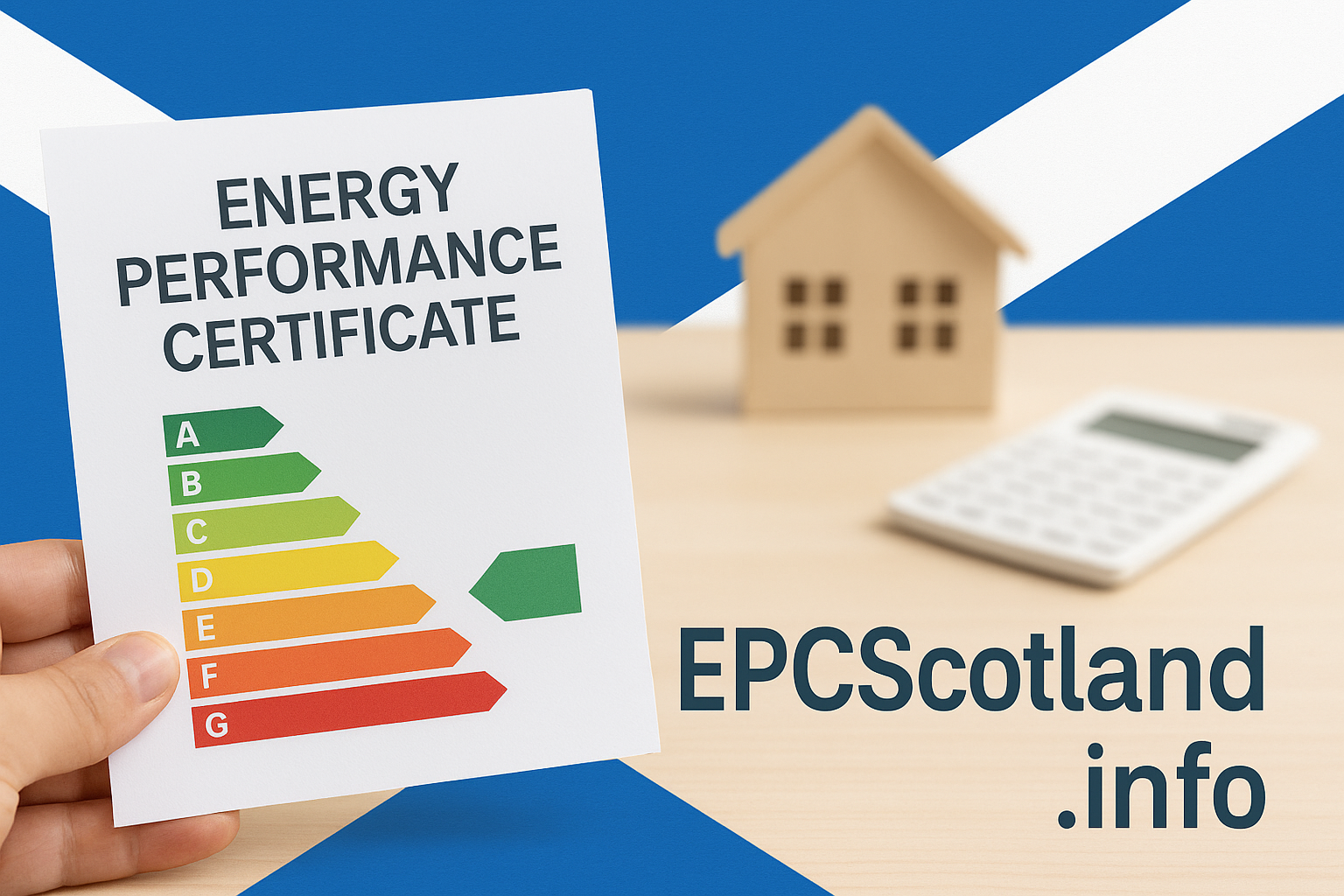What Is an EPC Certificate?
An Energy Performance Certificate (EPC) shows a property’s energy efficiency and estimated energy costs. It uses a standard scale from A (most efficient) to G (least efficient), and includes suggested improvements that could raise the rating.
Why EPCs Matter in Scotland
- They are mandatory when a property is sold, rented out, or newly built.
- EPCs must be displayed with the property details and are valid for 10 years.
- The certificate is registered on the Scottish EPC Register and is searchable by postcode or reference number.
What’s Inside an EPC?
- Energy efficiency rating (A–G): Current rating and potential after improvements.
- Estimated energy use & costs: Annual energy use and typical cost estimates based on standard assumptions.
- Environmental impact: Estimated CO₂ emissions for the property.
- Improvement recommendations: Practical and costed suggestions such as insulation, boiler upgrades, or lighting changes.
- Property and assessor details: Address, inspection date, and assessor accreditation information.
How to Get an EPC in Scotland
- Hire an accredited Domestic Energy Assessor (DEA) listed with a recognised accreditation scheme.
- The assessor visits and inspects the property, records details, and runs the standard RdSAP assessment.
- The assessor registers the certificate and issues an EPC, which is then added to the Scottish EPC Register.
- The EPC remains valid for 10 years unless replaced by a newer certificate.
Understanding the EPC Rating
The rating ranges from A (very efficient) to G (inefficient). The certificate usually shows a current rating and a potential rating if recommended measures are implemented. Higher ratings generally mean lower energy bills and reduced carbon emissions.
Things to Keep in Mind
- EPCs are based on standard assumptions and the RdSAP methodology; they may not always reflect actual occupant behaviour or recent improvements.
- Assessors use simplified inputs; results can vary between assessors for similar properties.
- Some recommended measures may be costly or have long payback periods—treat the suggestions as guidance, not guarantees.
- If you’ve made recent energy upgrades, consider requesting a new assessment so the EPC reflects the improvements.
Why an EPC Still Matters
- Legal compliance: Required for selling, letting, and new residential builds.
- Property comparison: Helps buyers and renters compare energy performance quickly.
- Access to funding: Some grants and schemes target properties with specific EPC ratings or require an EPC to qualify.
Quick Reference
| Feature | What it means |
|---|---|
| Definition | Rating of property’s energy efficiency on a scale A–G |
| Required when | Selling, renting, or constructing a property |
| Validity | 10 years |
| Includes | Rating, cost estimates, CO₂ impact, improvement suggestions |
| Where to find | Scottish EPC Register (search by postcode or report reference number) |

